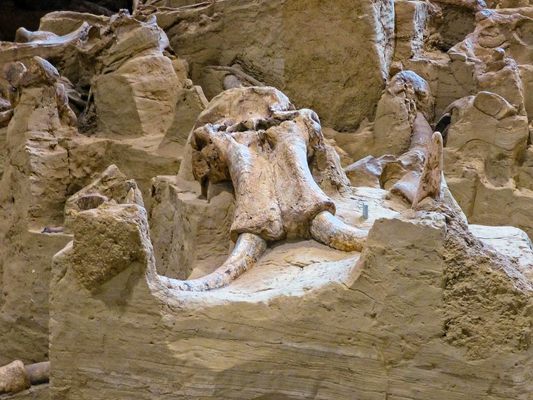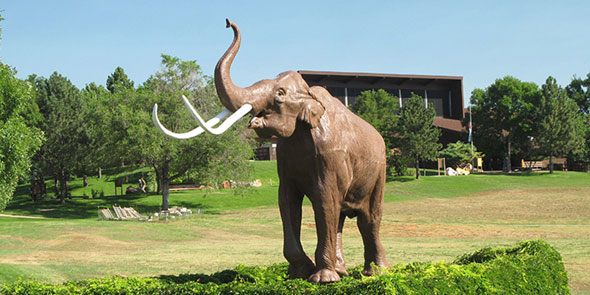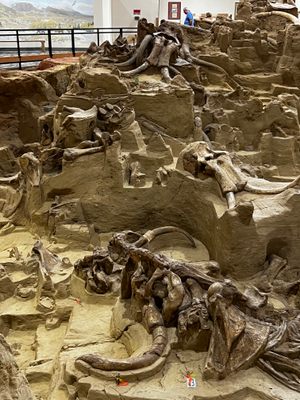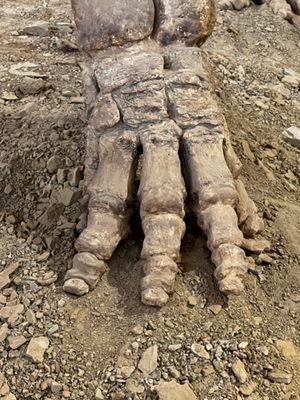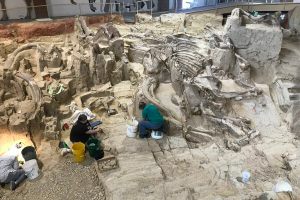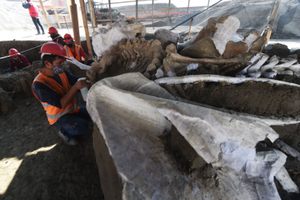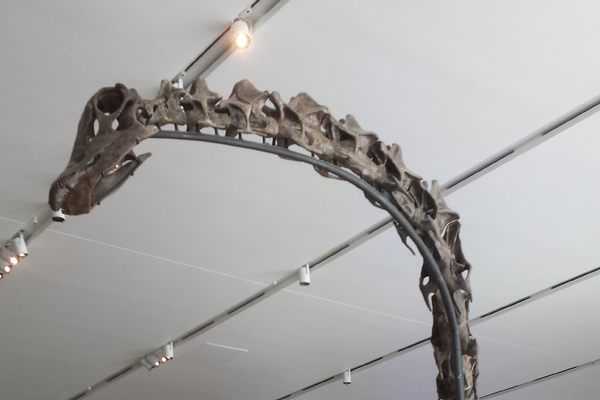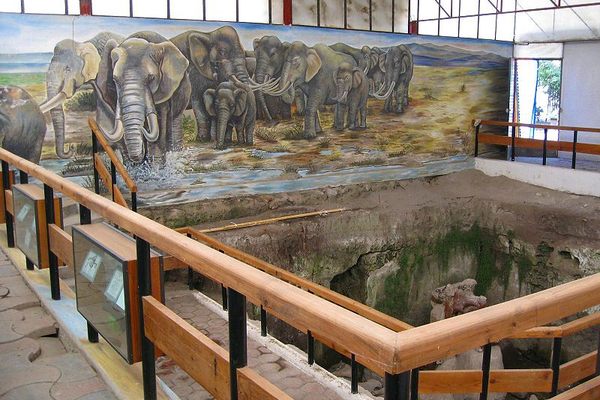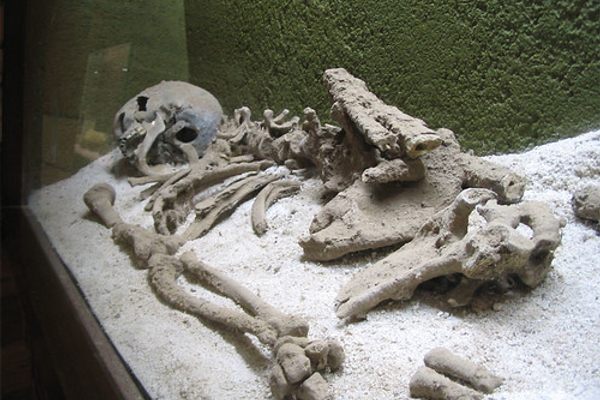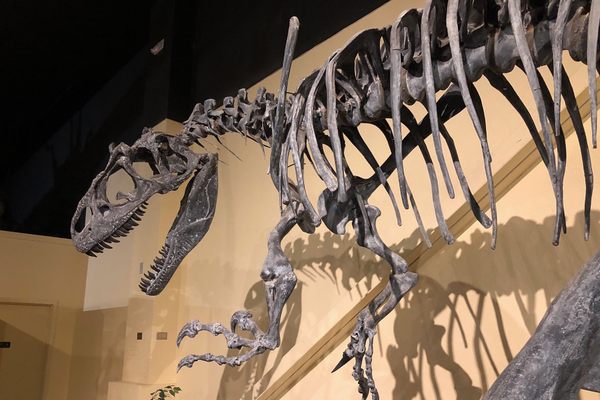About
Initially discovered by a construction worker and his son while they were looking to build on the land, the Mammoth Site in Hot Springs, South Dakota would prove to yield one of the largest deposits of prehistoric mammoth remains in the world. Male mammoths that is.
After stumbling on what would prove to be a giant tooth, the site father-son duo were able to excavate a full skull and that was just the beginning. Once an actual paleontology team took over the site, a seemingly endless treasure trove of bones and fossils became coming out of the ground. While there were the remains of giant bears and tremendous plants the overwhelming number of bones belonged to mammoths with one odd characteristic, they all seemed to be male. It is believed that if mammoth behavior is anything like modern pachyderm activity, they would have lived in a matriarchy where males are occasionally expelled from the group and are left to wander alone. This isolated existence may have led the shunned mammoths to stray towards the sinkhole which, once they fell in, they could not escape from.
Remains from at least 60 separate (Columbian) mammoths have been found in the excavation pit so far, in addition to remains from 3 wooly mammoths. This is the first time the two species have ever been found at the same site, which may have seen beasts lumbering to death from the far north and the deep south. A museum and research center has been built around the dig and most of the large bones have been left "in situ" in the rocks in which they were found. Visitors can actually enter the dug-out sinkhole and see the work. Which is more than can be said for the mammoths.
The Atlas Obscura Podcast is a short, daily celebration of all the world's strange and wondrous places. Check out this episode about the Hot Springs Mammoth Site.
Related Tags
Community Contributors
Added By
Published
January 27, 2014
